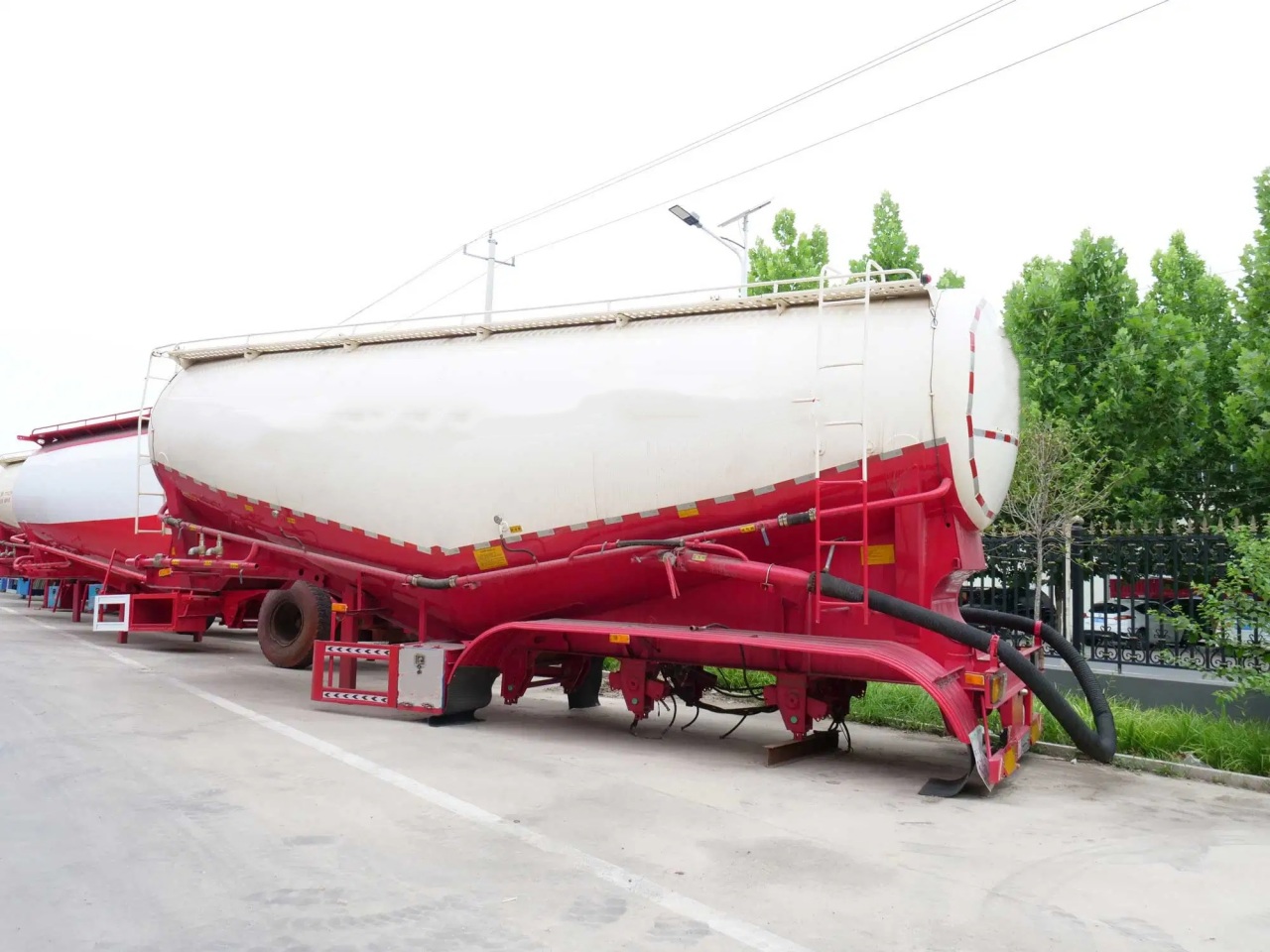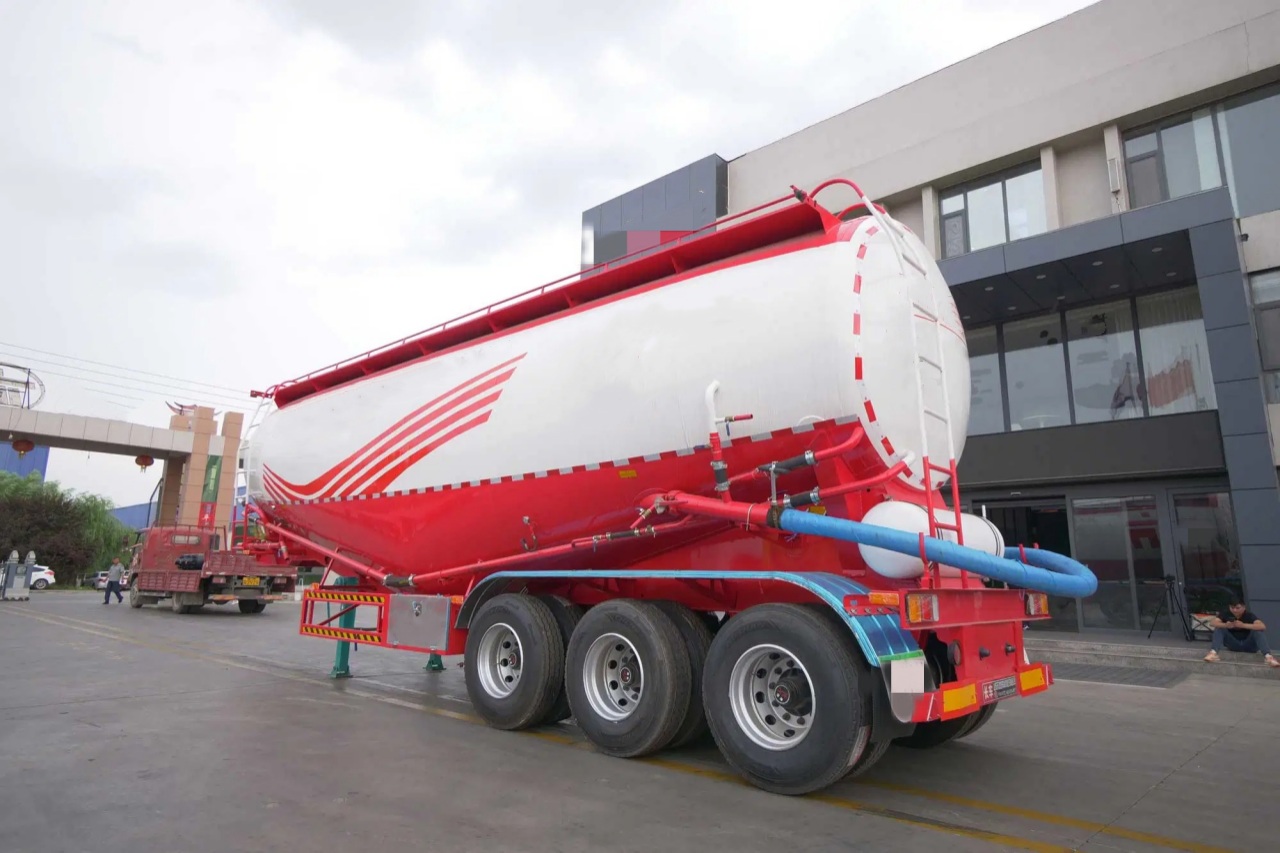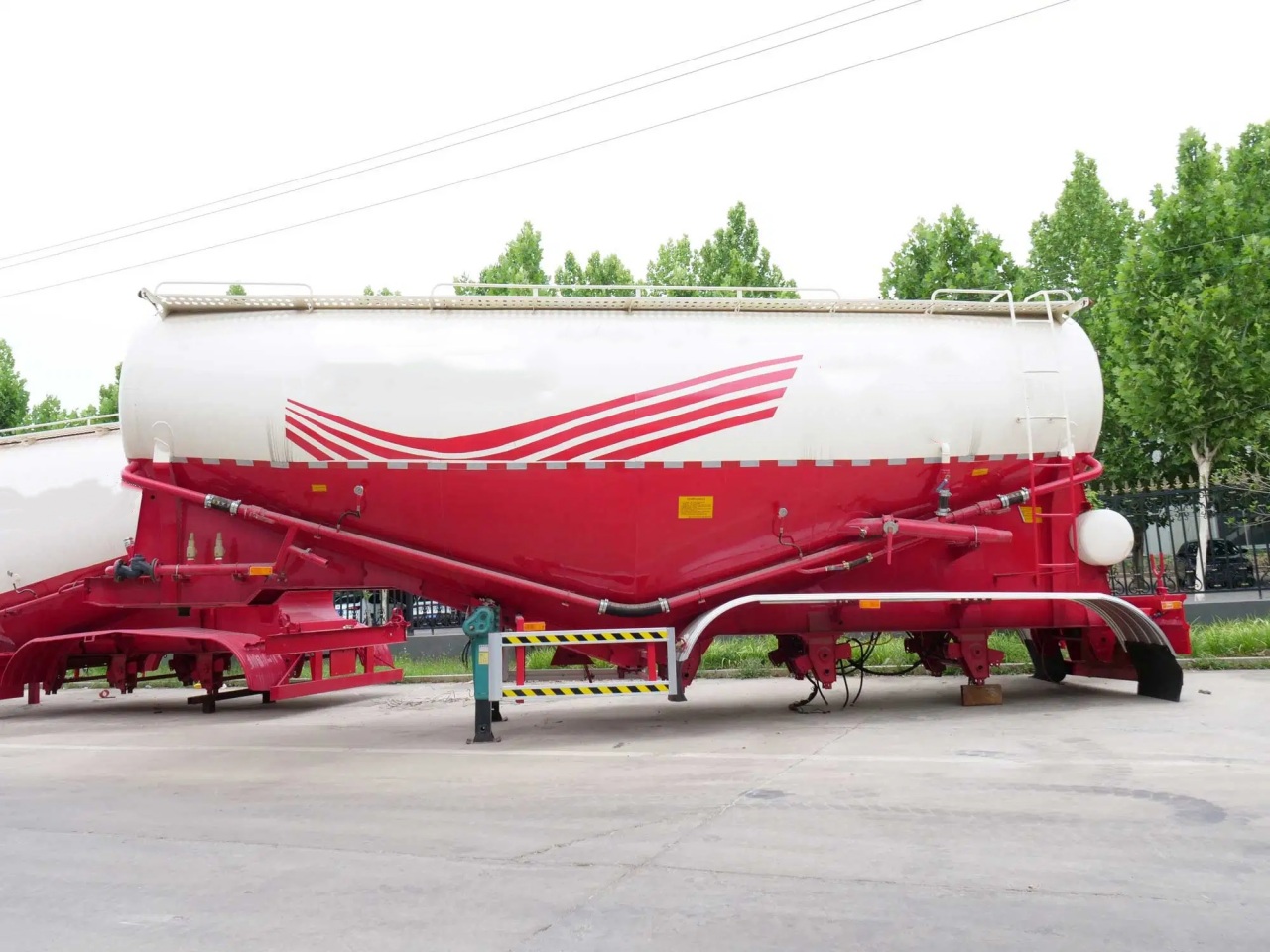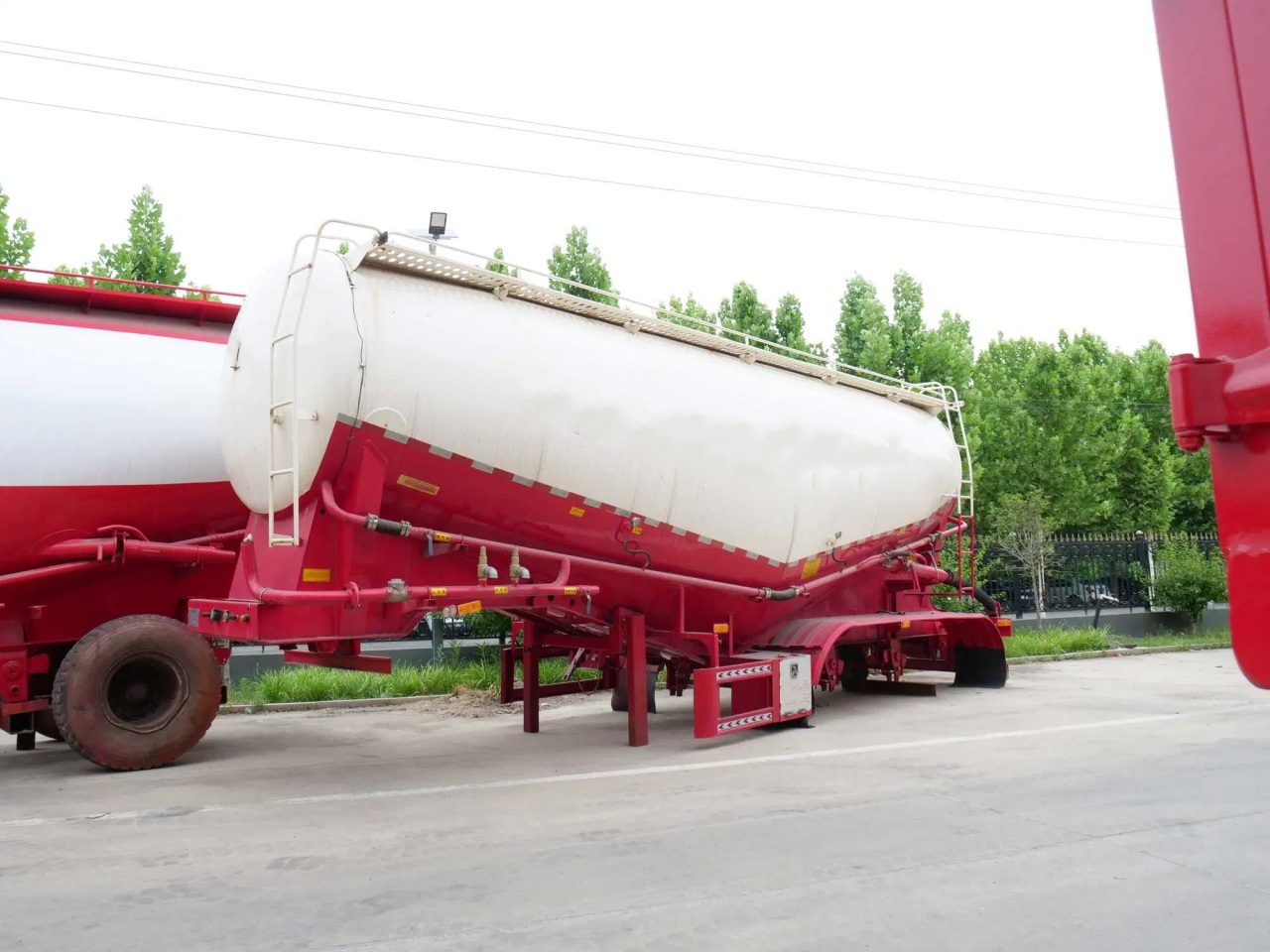In the transportation industry, efficiency, safety, and reliability are key when it comes to moving specialized goods. Among the wide range of transport vehicles available, pneumatic trailers—also known as dry bulk trailers or pneumatic tankers—serve a unique and vital role. These specialized trailers are engineered to carry dry bulk commodities in large quantities, with an emphasis on cleanliness, ease of unloading, and containment integrity.
But what exactly are pneumatic trailers used for, and why are they so essential in industries ranging from construction to agriculture? This article takes a deep dive into pneumatic trailers—their design, functionality, and primary applications across various sectors.
What is a Pneumatic Trailer?
A pneumatic trailer is a type of bulk tank trailer designed to transport dry, free-flowing, non-liquid materials. Unlike liquid tankers that rely on gravity or pumps for unloading, pneumatic trailers use compressed air to fluidize and discharge dry bulk products through hoses.
These trailers are typically cylindrical with multiple cone-shaped hoppers on the bottom, allowing for easy product flow. They are equipped with an air compressor or are connected to an external source of compressed air, which creates the pressure needed to “push” the product out of the trailer and into a storage facility or silo.
The sealed, pressurized design makes them ideal for carrying fine materials that need to be protected from moisture, contamination, and air exposure.
Key Features and Components
To understand their usage, it’s important to be familiar with the basic features of pneumatic trailers:
- Pressurized Tank: The tank is designed to be airtight and withstand internal pressure.
- Multiple Hoppers: Most pneumatic trailers have 2 to 4 cone-shaped hoppers underneath the main tank.
- Manholes and Vents: Allow for inspection and loading while maintaining pressure integrity.
- Valves and Piping System: Enable the regulation and direction of compressed air and material flow.
- Discharge Hoses: Connect the trailer to the receiver unit, like a silo or bin.
- Air Compressor (on-board or external): Generates the compressed air needed to unload the material.
This combination of components allows the trailer to pneumatically convey materials from the tank to the receiving system with minimal product loss or contamination.
Common Uses of Pneumatic Trailers
Pneumatic trailers are used extensively across multiple industries. Here are some of the most common applications:
1. Construction Materials Transport
The construction industry heavily relies on pneumatic trailers to transport bulk materials such as:
- Cement
- Fly ash
- Sand
- Lime
- Granulated slag
These materials are essential for producing concrete, mortar, and other construction compounds. Pneumatic trailers allow for fast, efficient, and clean delivery of these dusty substances, especially to sites with silos or elevated bins where unloading via compressed air is ideal.
2. Agricultural Products
In agriculture, pneumatic trailers are used to haul:
- Grain (wheat, corn, barley, etc.)
- Feed pellets
- Soybean meal
- Ground corn and milled grains
The sealed design keeps the products dry and uncontaminated, which is crucial for maintaining food safety standards. Additionally, unloading into feed silos or grain elevators is simplified using the pneumatic system.
3. Plastic Resin Pellets and Polymers
Plastic manufacturing facilities use pneumatic trailers to transport:
- Plastic pellets (polyethylene, polypropylene)
- Resins and powders
These materials are sensitive to moisture and contamination. The airtight structure of pneumatic trailers provides the cleanliness and precision required for high-quality plastic production.
4. Chemical Powders
Industries dealing with non-hazardous powdered chemicals also depend on pneumatic trailers. This includes:
- Calcium carbonate
- Sodium bicarbonate
- Titanium dioxide
- Activated carbon
These powders often need to be unloaded into sealed storage containers, making the pneumatic system ideal for such controlled environments.
5. Food-Grade Powders
Food processing and production companies use specialized food-grade pneumatic trailers to move products like:
- Flour
- Sugar
- Salt
- Powdered milk
- Cornstarch
These trailers are made with stainless steel interiors and FDA-approved seals to maintain hygiene and comply with safety regulations. The pneumatic system ensures that these food-grade materials are unloaded efficiently without spillage or contamination.
Advantages of Using Pneumatic Trailers
Pneumatic trailers offer several advantages that make them indispensable in specific transport applications:
1. Clean and Dust-Free Unloading
Compressed air unloading ensures that the product is transferred with minimal dust or mess, maintaining site cleanliness and environmental compliance.
2. No Need for Tilting or Tipping
Unlike end-dump trailers, pneumatic trailers remain level during unloading, reducing the risk of accidents and enabling use in tight or uneven locations.
3. Product Integrity
Sealed tanks protect the product from moisture, air, and contaminants, which is especially important for food-grade or chemical materials.
4. Efficient Loading and Unloading
Automated or semi-automated loading and unloading procedures reduce labor costs and turnaround times.
5. Versatility
One trailer can be used to transport a wide variety of dry bulk materials, making it a flexible investment for logistics companies.
Challenges and Considerations
While pneumatic trailers are highly efficient, there are a few challenges and considerations to keep in mind:
- Initial Cost: These trailers are more complex and often more expensive than standard bulk haulers.
- Compressor Maintenance: The air compressor system requires regular maintenance to ensure proper function.
- Weight Considerations: Heavier materials can limit payload capacity due to legal weight restrictions.
- Cleaning Requirements: When switching between different materials, especially food-grade and non-food-grade, thorough cleaning is essential to prevent cross-contamination.
Conclusion
Pneumatic trailers are a crucial part of the bulk material transport landscape, serving industries that need to move large quantities of dry, flowable materials safely and efficiently. From delivering cement to construction sites, to transporting plastic pellets to factories, and supplying food powders to processing plants, these trailers are built for performance, protection, and precision.
Whether you are a fleet operator, a logistics planner, or a business owner in one of these industries, understanding the value and versatility of pneumatic trailers can help you make informed decisions about your transportation needs. Their ability to maintain product integrity while reducing unloading time makes them a smart choice for any operation dealing in dry bulk goods.





